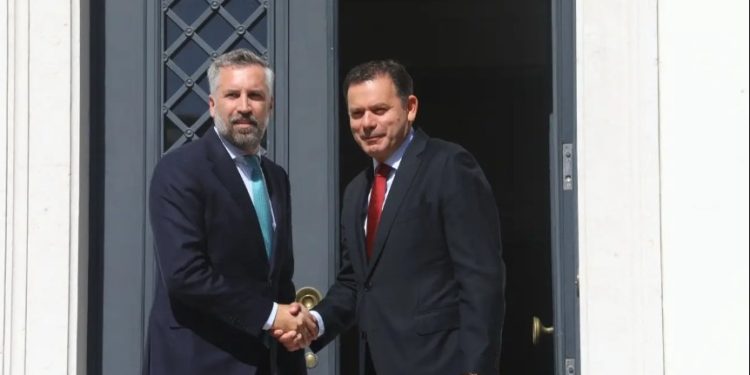The fall of the AD government (Democratic Alliance – the right wing coalition between the Social Democratic Party ‘PSD‘, the Democratic and Social Centre-People’s Party ‘CDS-PP‘, as well as the People’s Monarchist Party ‘PPM‘) was not inevitable. It was a calculated move, in an attempt to avoid prolonged wear and tear, and to capitalise on some political leeway before the scenario at hand became even more unfavourable. Just as the PS (Socialist Party) did in 2022, the PSD now prefers to throw the country into elections rather than face the slow rot of a government incapable of responding to the needs of the population. And so the vicious cycle of alternation between PS and PSD continues, ever more exposed, ever more rotten, ever more useless for those who make a living from their work.
In fact, since 2019, no government has managed to complete its term. We had early elections in 2022, again in 2024 and now in 2025. This constant cycle of dissolving the parliament and snap elections is a reflection of the fatigue of a system that is no longer able to generate lasting consensus or ensure the ‘stability’ that the regime’s parties are so fond of. The difficulty in forming clear majorities, the failure of coalitions, and permanent parliamentary instability reveals a regime in decline – where the social and economic crisis is fuelling political disintegration.
António Costa’s government, despite the absolute majority it achieved in 2022, fell after eight years in office, marked by rising housing prices, chaos in the SNS (National Health Service), and worn down by strikes in essential sectors, such as health and education. His fall was precipitated by a corruption scandal, but the real problem was the accumulation of popular discontent in the face of a government that no longer represented anyone but the interests of those at the top.
Montenegro’s situation was different. Despite the fragile nature of his minority government, and the fact that difficulties were anticipated from the outset as to whether he would be able to see the term through to the end, the truth is that, after passing the first major test – the approval of the 2025 State Budget – a scenario of relative stabilisation began to emerge. The government was showing some resilience, with a slight recovery in its popularity and, in political terms, it seemed possible that it could hold out at least until the vote on the 2027 State Budget. His fall was therefore unexpected for many.
But rather than an inevitable crisis or one imposed by circumstances, the fall of the AD government was actually deliberate. Montenegro preferred to bring about early elections now, while he still had some political breath left, rather than drag his feet until he was consumed by a parliamentary committee of enquiry and new cases and controversies. On the PS’s side, despite sharing with the PSD the commitment to guarantee the stability needed for the bosses’ businesses to develop – ensuring that labour reforms, low wages, social containment and exploitation continued smoothly – it was becoming untenable to assert itself as an alternative, by continuing to serve as a political crutch for AD.
The PSD, led by Luís Montenegro, has so far rejected any arrangement or agreements with Chega (Enough! – the far-right party), maintaining its ‘red line’ against the far right. However, the pressure to form a majority could put that line to the test – especially if André Ventura continues to condition the public debate and present himself as ‘inevitable’ for a right-wing solution.
Chega, for its part, is playing a double game: it says that the PS and PSD are the same, whilst simultaneously begging the PSD for a place in its government. The Liberal Initiative (IL), meanwhile, is trying to position itself as a stable and rational partner for the PSD. Their favorable vote in the confidence motion, in support of the current government, shows a clear attempt to present itself as a ‘governable’ force, capable of contributing to a right-wing coalition.
In the midst of this fragmentation, the next government will most likely depend on unstable parliamentary agreements and coalitions, with constant blackmail by the far right of the PSD, or unforgivable concessions given to the PS by the left. That’s why none of these solutions, that seek to give greater stability to a PSD or PS government, represent a real alternative for workers and youth. For the majority of the population – workers, young people, pensioners, immigrants – any of these governments will mean more of the same: low wages, sky-high rents, precariousness, the degradation of public services and growing repression.
Meanwhile, the far right is growing, exploiting the frustration generated by decades of betrayals. But far from representing a solution, Chega and the Liberal Initiative want to apply even more violent versions of the same old programme: more exploitation, fewer rights, more repression. And the institutional left, incapable of breaking with this regime and defending a radical programme against the bosses’ governments, is still waiting to be granted the role of the PS‘s support force – even after everything it has done to the SNS, housing, labour rights and youth.
We need to build an alternative that points to a new project for the country, with the working class at the centre. United Workers is a tool for this project – a new party, made to fight, to organise and to win. Because it’s not enough to resist.













